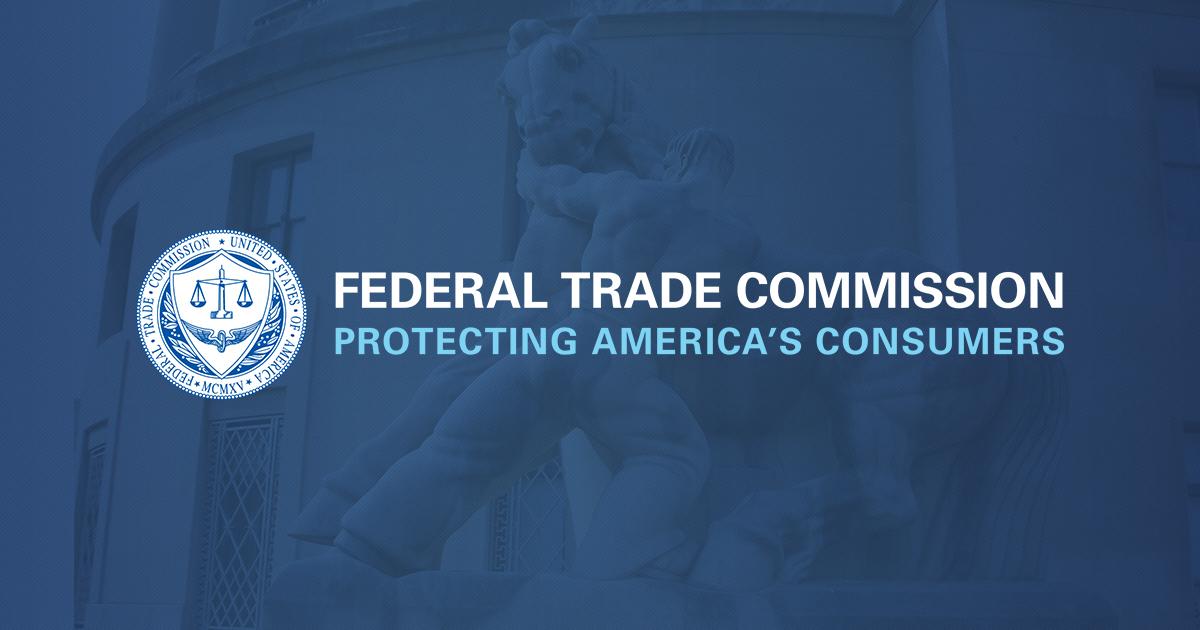The Federal Trade Commission testified today before the House Energy and Commerce Subcommittee on Consumer Protection and Commerce about its efforts to effectively protect consumers and promote competition, while anticipating and responding to changes in the marketplace.
Testifying on behalf of the Commission, FTC Chairman Joseph J. Simons and Commissioners Noah Joshua Phillips, Rohit Chopra, Rebecca Kelly Slaughter, and Christine S. Wilson said the FTC is committed to using its resources efficiently to protect consumers and promote competition through law enforcement, policy and research, and consumer and business education. The Commission noted that FTC law enforcement actions have helped return more than $1.6 billion to consumers during fiscal year 2018.
The testimony notes that the FTC has expanded its focus on privacy to reflect the growing collection, use, and sharing of consumer data in the commercial marketplace. Under Section 5 of the FTC Act and other authorities granted by Congress, the Commission has aggressively pursued privacy and data security cases in myriad areas, including children’s privacy, financial privacy, health privacy, and the Internet of Things.
The testimony notes, however, that there are limits to the FTC’s Section 5 authority. The testimony urges Congress to enact privacy and data security legislation, enforceable by the FTC, which would grant the agency civil penalty authority, targeted APA rulemaking authority, and jurisdiction over non-profits and common carriers.
The Commission has brought more than 65 data security cases and 60 general privacy cases, the testimony states. For example, during the last two months, the FTC brought cases under the Children’s Online Privacy Protection Act (COPPA) against the operators of the online dress-up games website i-Dressup and the operators of the popular video social networking app Musical.ly, now known as TikTok. The Commission reached a settlement of the i-Dressup case, and the operators of Musical.ly agreed to pay a $5.7 million civil penalty, the largest COPPA penalty ever.
As part of its mission to protect consumers, the FTC also tracks down and stops some of the most egregious scams that prey on U.S. consumers, including defendants who promote business opportunity scams, deceptively pose as the government or well-known tech companies, or blast consumers with illegal robocalls. The agency also has brought cases challenging false and unsubstantiated health claims, including those targeting older consumers and individuals affected by the opioid crisis.
The FTC also enforces U.S. antitrust law in many sectors that directly affect consumers and their wallets, such as health care, consumer products and services, technology, manufacturing, and energy, the testimony states. For example, the Commission has continued its decades-long efforts to fight anticompetitive conduct in the pharmaceuticals and health care industries, the testimony notes. Last month, the Commission filed a complaint against health information company Surescripts, alleging that it illegally maintained its monopolies over two electronic prescribing markets. The testimony also describes the FTC’s robust program to identify and stop anticompetitive conduct in other industries. The testimony cites the 1-800 Contacts matter, in which the Commission ruled that agreements among competitors to limit the scope of their Internet advertising were unlawful.
According to the testimony, the FTC’s Bureau of Competition recently announced the creation of a Technology Task Force to more closely monitor competition in the technology sector. The Task Force will examine industry practices, conduct law enforcement investigations, and coordinate and consult with staff throughout the FTC on technology-related matters, including prospective merger reviews and reviews of consummated technology mergers.
The testimony also discusses the FTC’s Hearings on Competition and Consumer Protection in the 21st Century initiative launched in September 2018. The hearings are examining whether broad-based changes in the economy, business practices, technologies and other developments might require adjustments to competition and consumer protection law, enforcement priorities, and policy. Since the hearings began, the FTC has heard from more than 350 panelists and received more than 850 public comments.
The Commission vote authorizing the testimony was 5-0.
The Federal Trade Commission works to promote competition, and protect and educate consumers. You can learn more about consumer topics and file a consumer complaint online or by calling 12-877-FTC-HELP (382-4357). Like the FTC on Facebook, follow us on Twitter, read our blogs, and subscribe to press releases for the latest FTC news and resources.

